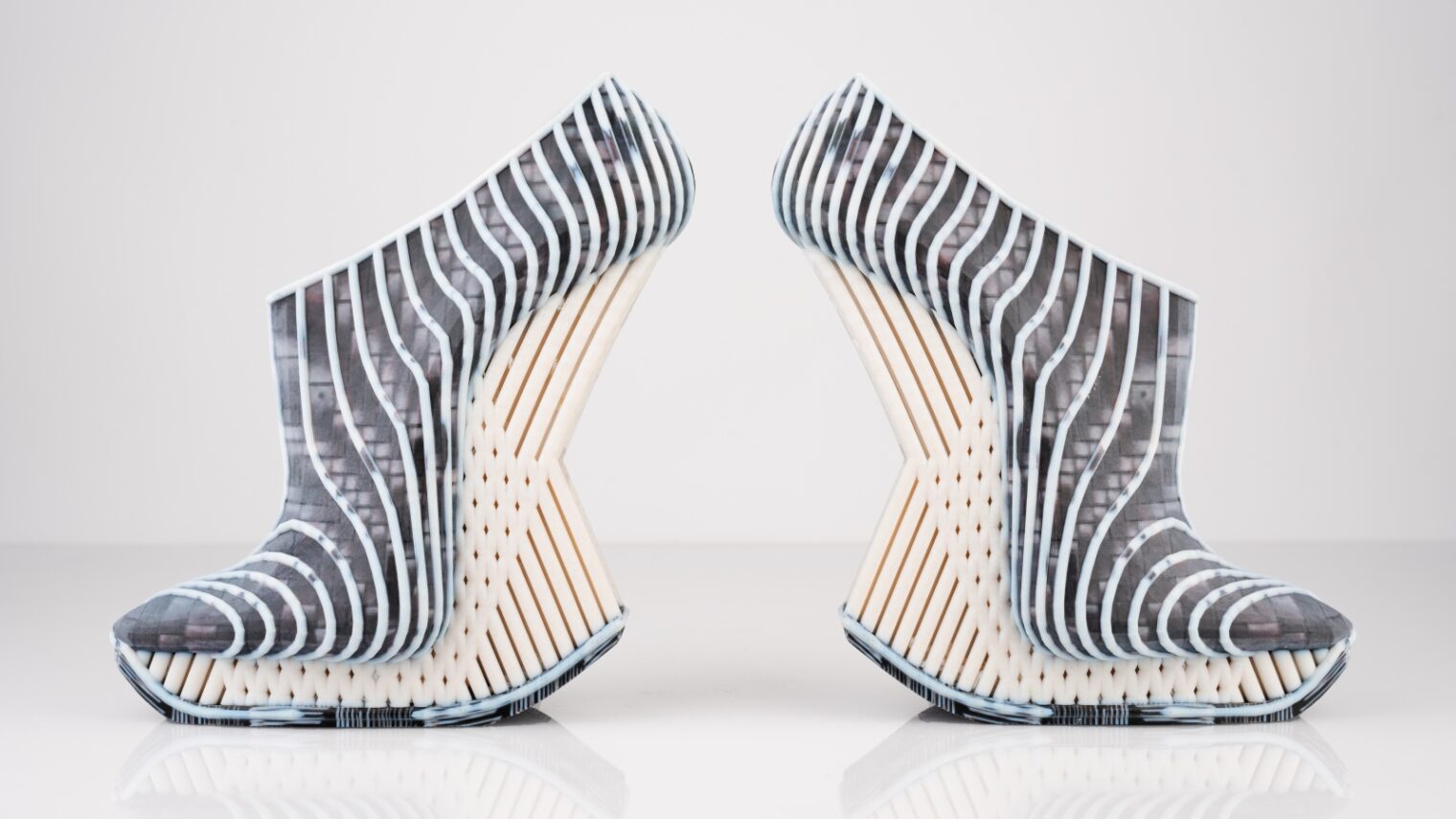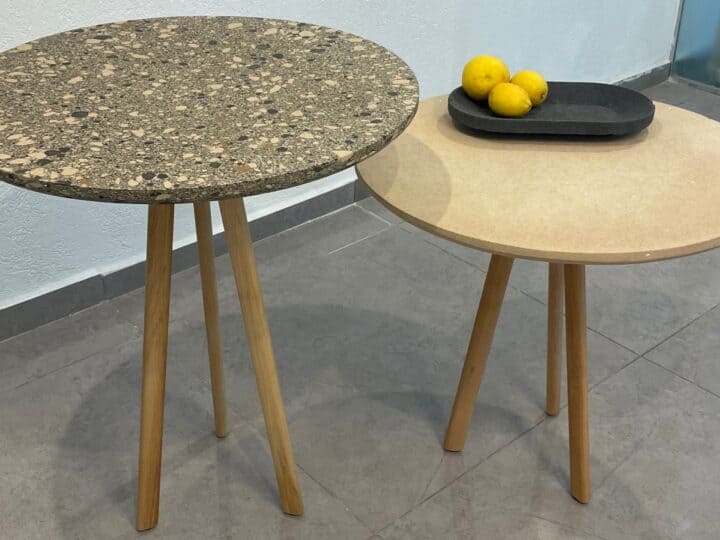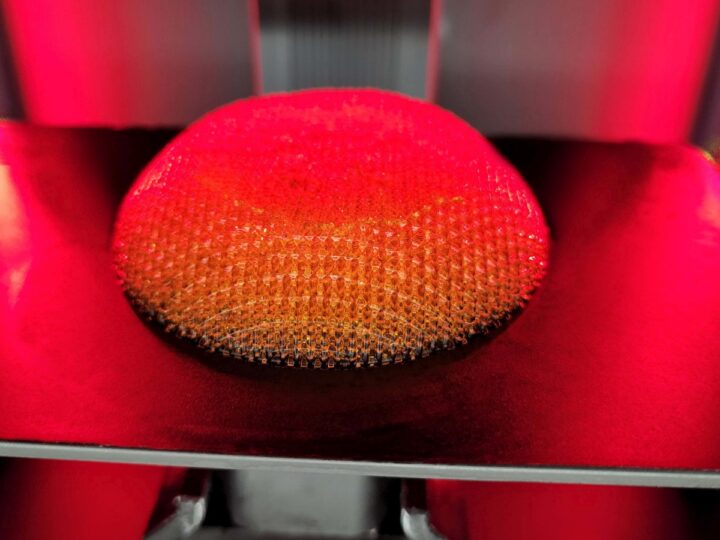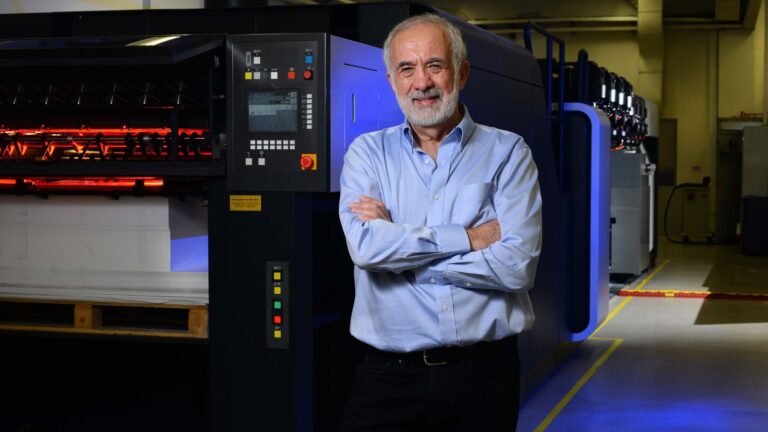A unique collection of 3D-printed clothing and shoes by 26-year-old Israeli designer Ganit Goldstein has been getting attention across the globe.
Goldstein created the “Between the Layers” collection of seven outfits and six pairs of shoes for her senior project at Jerusalem’s Bezalel Academy of Arts and Design. She combined cutting-edge manufacturing techniques with traditional crafts such as hand weaving.
In September, Goldstein was one of 11 designers – and the only one from Israel — invited to compete in the Redress Design Awards 2018 in Hong Kong, the world’s largest sustainable fashion design competition. She placed second overall.

In December, Goldstein was the only Israeli student chosen among 50 finalists for the 2018 Arts of Fashion competition at the Asian Art Museum in San Francisco, from among 340 applicants representing 104 schools in 32 countries. She was the first Bezalel Academy graduate ever to take part in the competition.

Goldstein said she was inspired to create “Between the Layers” while an exchange student at Tokyo University of the Arts. There she experimented with shredding secondhand fabrics and industrial textile leftovers and using a traditional Japanese textile technique called IKAT weaving to create unusual designs.
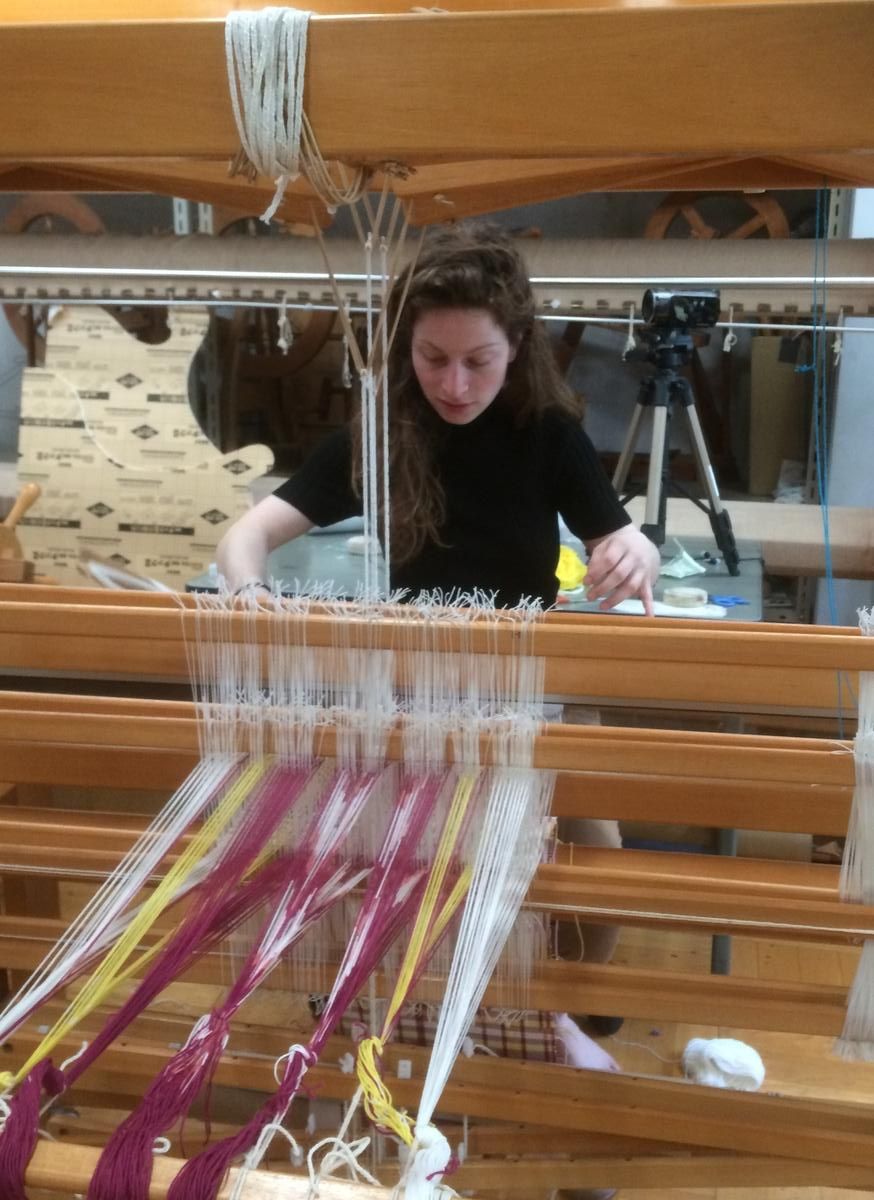
Deciding to focus exclusively on fashioning new items from textile waste, Goldstein then returned to Israel and began to develop a weaving process using architectural software, an Original Prusa i3 Mk3 3D printer, Intel RealSense scanning technology and a flexible, biodegradable PLA (also called TPU) plastic polyester derived from renewable resources such as corn starch, cassava roots or sugarcane.
“3D printed technology has a sustainable effect because you print only what you need, without any waste,” Goldstein tells ISRAEL21c.
She even invented 3D-printed lace, using a nanoparticle material developed for her project at the Hebrew University’s Casali Institute of Applied Chemistry and the 3D Functional and Printing Center at the Hebrew University Center for Nanoscience and Nanotechnology.
For her shoes, Goldstein now uses a Stratasys Objet 500 Connex3 color, multi-material 3D printer. Its PolyJet technology deposits the material in layers and in varying hardness and softness for a personalized touch.

“With the knowledge I’ve gained while working with Stratasys, I’ve come to realize that 3D printing is increasingly becoming an integral part of design thanks to the unique design freedom achievable,” she says. “Not only does 3D printing accelerate the design process and enable reduced production costs, it also affords designers total freedom of design.”
In March 2019, six of Goldstein’s outfits and three pairs of her 3D woven shoes – some of which are in the permanent collection at the Design Museum in Holon — will be highlighted at the Talente competition for young artists as part of the International Trade Fair for the Skilled Trades in Munich.
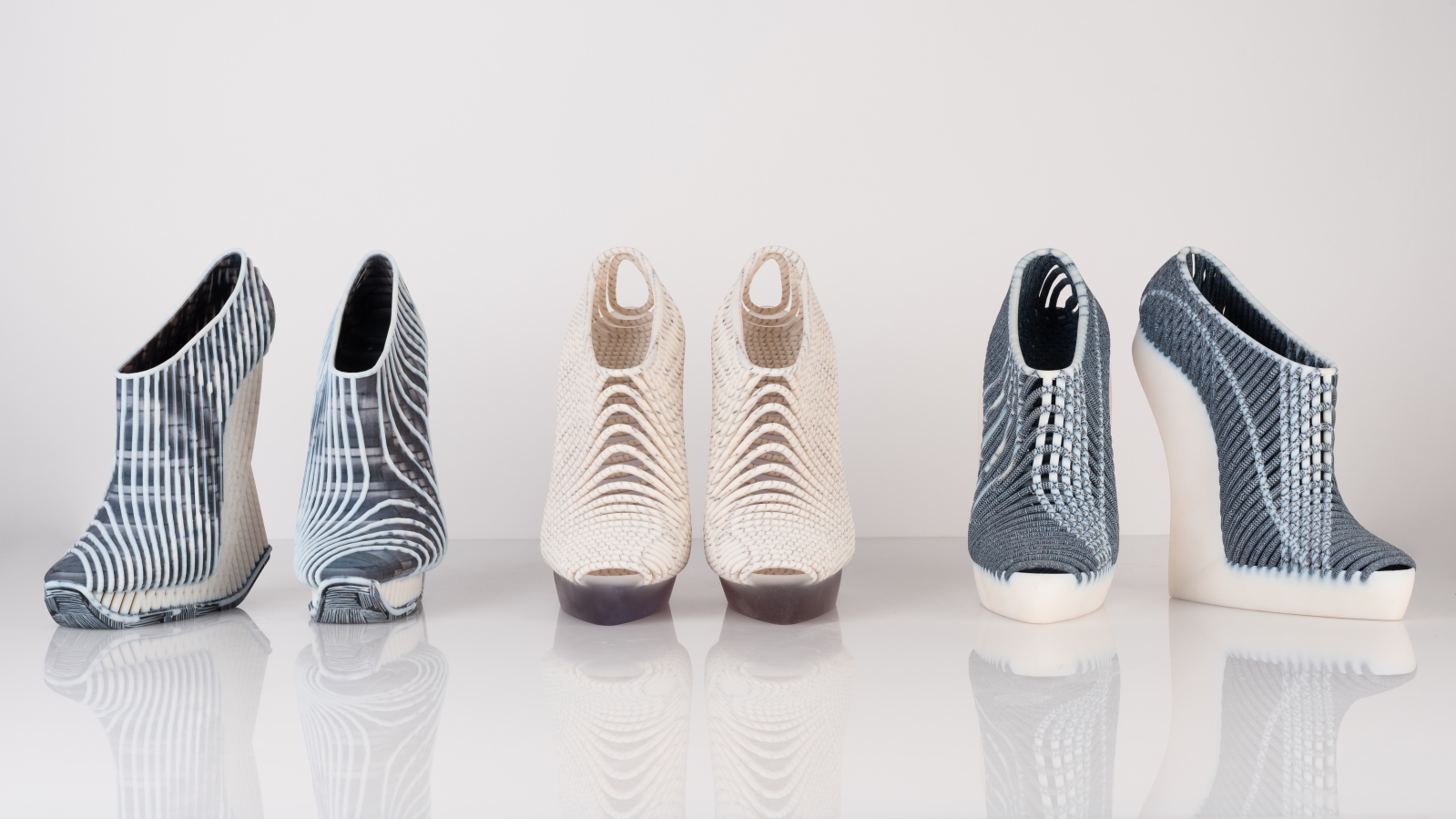
The following month, she will begin a three-month residency in Germany at the Emma Creative Center in Pforzheim. Only three designers from around the world were accepted, one representing fashion, one jewelry and one industrial design.
“They give us everything we need to develop our own work and then we exhibit it there,” says Goldstein, who also worked with Intel in Jerusalem to develop an augmented reality app that visually describes the process used to create the “Between the Layers” collection.
The Jerusalem native said she hopes to develop a commercial line of shoes and 3D-printed jewelry.
“For me it’s not just about 3D printing, it’s more about developing new methods of combining craft and technology,” Goldstein tells ISRAEL21c.
For more information, click here




